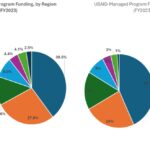The artificial intelligence revolution has investors scrambling to find the next Nvidia—a company whose stock has skyrocketed over 1,600% in the past five years amid the AI boom. While Nvidia continues to dominate headlines, savvy investors are looking beyond the obvious to identify overlooked players poised to capture substantial market share in the rapidly expanding AI chip sector.
One semiconductor company has quietly positioned itself to potentially deliver exceptional returns, backed by a staggering $6 billion investment into AI chip development. Taiwan Semiconductor Manufacturing Company (TSMC), the world’s leading chip foundry, stands at the crossroads of nearly every major AI advancement without receiving the same spotlight as Nvidia.
“The AI chip market isn’t a winner-take-all scenario,” says industry analyst Michael Chen. “TSMC manufactures the physical chips that power AI innovations for dozens of tech giants, including both Nvidia and its competitors. They’re essentially selling pickaxes during a gold rush.”
TSMC’s strategic importance becomes clear when examining the numbers. The company commands over 60% of the global semiconductor foundry market, with its advanced manufacturing processes critical for AI chip production. Their recent $6 billion expansion of fabrication facilities dedicated specifically to AI chip production signals their confidence in sustained demand growth.
While Nvidia designs the architectures that power AI systems, TSMC actually manufactures these chips along with those from AMD, Intel, and numerous AI startups. This diversification gives TSMC a unique hedge—they profit regardless of which AI chip designer ultimately gains market share.
Financial indicators support the investment case. TSMC reported a 16.5% year-over-year revenue increase in their most recent quarter, with management specifically highlighting AI-related orders as a primary driver. With a price-to-earnings ratio significantly lower than Nvidia’s, TSMC offers AI exposure at a more reasonable valuation.
“TSMC represents the infrastructure play in AI semiconductors,” notes financial strategist Sophia Wong. “Their manufacturing expertise creates an effective moat around their business. Building competitive fabrication facilities costs tens of billions and takes years—advantages competitors can’t easily overcome.”
The company faces challenges, including geopolitical tensions between Taiwan and China, along with emerging competition from Intel’s foundry services and Samsung’s advanced manufacturing. However, TSMC’s technological lead and established relationships with major chip designers provide substantial competitive advantages.
Unlike pure AI chip designers who must navigate rapidly changing technological landscapes, TSMC benefits from the entire ecosystem’s growth. Their expansion plans, which include new facilities in Arizona and Japan, strengthen their global positioning while mitigating geographic risks.
For investors seeking AI semiconductor exposure beyond the obvious choices, TSMC offers a compelling alternative with proven execution, reasonable valuation, and direct exposure to the industry’s explosive growth. While lacking the dramatic headline appeal of Nvidia, TSMC’s foundational role in the AI revolution may ultimately deliver more sustainable long-term returns.
Will TSMC become the unsung hero of the AI semiconductor boom? Only time will tell, but $6 billion in AI manufacturing investments suggests they’re betting big on exactly that outcome.
For more technology and market insights, visit CO24 Business or stay updated with the latest developments at CO24 Breaking News.

























